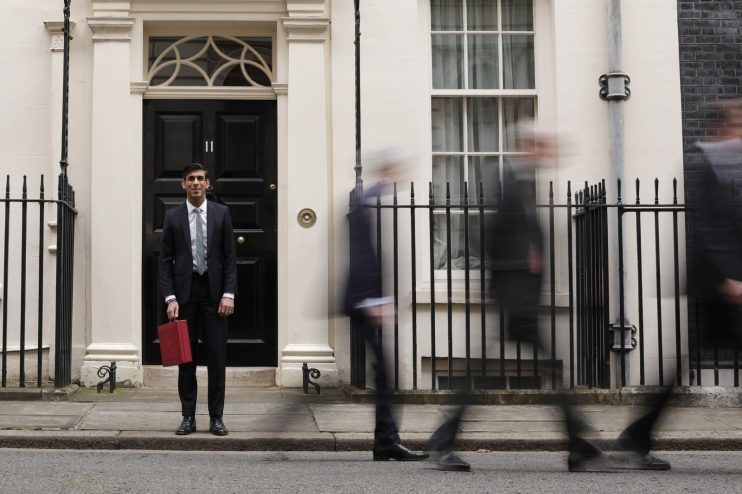IFS says Sunak likely to end up spending more than planned

Chancellor Rishi Sunak is likely to end up spending more than he said he plans to in his spending review today amid “lasting damage” to the economy, the leading Institute for Fiscal Studies (IFS) think tank and other experts have said.
Sunak today said he would ramp up public spending to tackle coronavirus next year by £55bn, having spent £280bn on the crisis this year. Government borrowing is set to soar to a peacetime high of £394bn this year, the Office for Budget Responsibility (OBR) said.
However, the IFS pointed out that Sunak has cut £10bn from departments’ non-Covid spending in 2021-22 from his previous plans.
Much of this saving comes from cuts to the overseas aid budget and a public sector pay freeze from which NHS workers are excluded, but not all.
Despite this, Sunak is still increasing public spending overall by around 3.8 per cent. That is the biggest rise in 15 years.
Nonetheless, IFS director Paul Johnson said Sunak may struggle to stick to this policy of spending less than previously planned. The IFS said “lasting damage” to the economy would play a part.
Johnson said: “He has also allocated precisely nothing for Covid related spending after next year. And these plans assume that the temporary increase in Universal Credit will not continue beyond this year.
“Each of these assumptions is questionable. It seems more likely than not that spending will end up significantly higher than set out today, and so borrowing in 2024-25 will be considerably more than the £100bn forecast.”
Chancellor being ‘optimistic’ with spending plans
Torsten Bell, chief executive of the Resolution Foundation think tank, also said the chancellor was being “optimistic” in that he had not pencilled in any permanent rises in spending aside from tackling coronavirus.
“The idea that there will be no permanent increase in spending post-pandemic is what you might politely call optimistic,” he said.
“It is certain that tax rises will end up playing a bigger part in any real plan to put the public finances on a sustainable footing once the recovery is secured.”
However, Ruth Gregory of consultancy Capital Economics said the OBR’s forecasts could end up being too pessimistic.
“We think the OBR’s forecasts are underplaying the effect of vaccines on economic activity which would go along way to filling any fiscal hole.”
She added: “It is not necessarily the case that there will be a fiscal hole anyway if the economy eventually gets back to its pre-virus level as we think it will.”
Gregory said taxes are likely to have to rise. But she said that raising them too soon could “be self-defeating if it prevents the economy from getting back to pre-virus levels”.